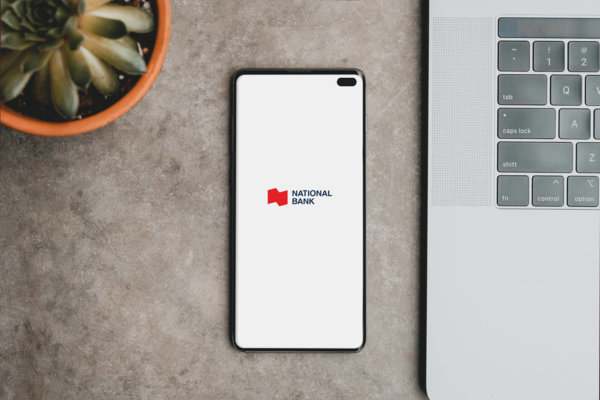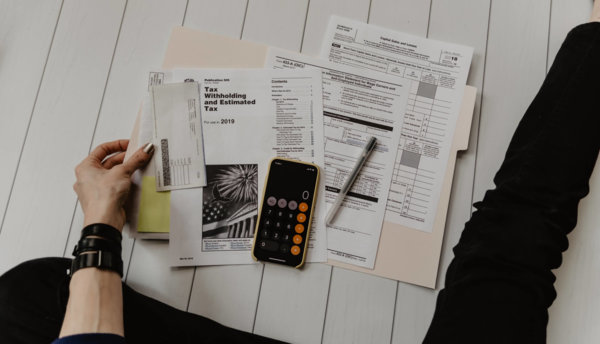What Is A Pension? - The Full Guide
Pension plans are designed to provide retirement income for workers who don’t have access to other sources of savings or investments. They typically offer higher returns than 401(k) plans, which are also known as defined contribution plans.
Pensions are important because they allow employees to save for their future without having to worry about saving enough themselves.
The government provides tax breaks to employers who offer pensions, and these benefits are often matched by employee contributions. This article will discuss pensions and why they are essential for ensuring a comfortable retirement.
Also read: How To Organize Your Financial Records In 5 Easy Steps

What Is A Pension Plan?
A pension plan — whether it’s private or public — is an agreement between the employer and the worker that provides financial support during and after retirement.
There are two main types of pensions: defined benefit (DB), in which the employer matches contributions made by the employee; and defined contribution (DC), in which the amount contributed by the employee isn’t guaranteed and will depend on how much money he puts into his own retirement fund.
Also read: Comparing Furlough Vs Layoff
Pension Benefits And Retirement Plans
According to the Employee Benefit Research Institute, over $5 trillion was put into DB and DC plans together in 2017. In 2010, there were more than 50 million Americans enrolled in DB plans alone, showing just how popular this type of investment has become.
In addition to providing retirement income, pension plans can be used at any time that they are available. For example, if you take advantage of your employer’s health care coverage when you’re young, you could use your employer’s retirement program later in life.
Employers usually make matching contributions to the pension plan and are then entitled to receive a monthly payout based on some formula.
For example, a person might get 1/2% of her salary per year, multiplied by 20 years and then divided equally among all retirees in that group.
Another option is to contribute a fixed dollar amount each month. This means that regardless of what happens with the company’s share price or economy, you won’t lose out — your nest egg will grow even though the stock may not increase in value.
Many companies match only new hires, but others extend this benefit to current employees too. If you work for a company that doesn’t match, check what options are available in your human resources department.
You could choose to participate in a non-matched account using your personal earnings instead.
Also read: Self-Employed Taxes For Dummies
Why Are Pensions Important?
Wealthy people think about retirement long before they actually reach their golden years. However, many working-class individuals still aren’t fully prepared for retirement and rely heavily on social security.
Because they don’t necessarily earn their way into a company pension plan, they need to look elsewhere for retirement benefits.
The key issue here is that most retirees live longer than expected, and so they outlive the funds set aside for them. By contributing to a pension plan, an individual ensures that she has taken steps towards preparing for old age.
By taking part in a company pension plan, an individual has a reliable source of income no matter what happens to the market in the coming decades.
Having a regular stream of cash every month makes up for the fact that you’re unlikely to outlive your savings in the first place.
A number of studies have shown that participation in a pension scheme boosts morale within an organization, meaning the workforce does better overall.
By encouraging workers to save, employers are also creating an incentive for talented people to stay with the firm for as long as possible.
Also read: New Revenue Recognition Standard - What Is Asc 606?

Target-date Funds
If you want to start saving for retirement right away, it may be a good idea to consider investing in something called target-date funds.
These mutual funds hold a mix of stocks that reflect various stages of your career and can help you achieve a financial goal without having to actively manage your investments yourself.
It’s important to note that these investment products require a certain level of expertise and can be very risky. But if you know how to invest, you should still give them a try because they offer a great alternative to traditional pensions.
Pension plans come with all sorts of advantages and disadvantages. To find out which one works best for you, talk to a financial advisor who knows the ins and outs of different types of pension programs.
Also read: 9 Tips To Being Financially Stable In 2020
Pension Plans for Millennials
As we mentioned earlier, millennials do tend to favor self-directed accounts. In addition to offering flexibility, they are less expensive and often provide more tax benefits.
This means it typically costs about $1,500 to buy an individual IRA compared to $5,000 for a 401(k).
In addition to those two major factors, millennials also want simplicity. Their generation grew up with technology, and they prefer online solutions where they can easily access everything via their smartphones.
With any type of pension, making sure you understand exactly what you are getting and how much you’ll pay are keys to success. The more informed you are, the better decisions you can make when choosing a particular plan.
When thinking about retirement, keep in mind that there are various options available to you. If you’ve had some experience with other kinds of investments and feel confident using an investing account, then why not pick that option over a pension?
Pension funds just might be a little too complicated and intimidating for someone with little or no experience. These funds usually cost several hundred dollars per year, and they are only accessible to employees at large companies.
That said, they are worth considering if you already work for a big corporation and are eligible to participate.
Final Thoughts
While there are plenty of things to think about, when it comes to deciding between a defined benefit and a defined contribution plan, the choice isn’t binary.
There are pros and cons to each. For example, defined contribution plans typically allow workers more freedom by giving them flexibility to decide on the specifics of how to invest their money.
But this flexibility can lead to uncertainty about whether your job will last and mean you don’t get guaranteed income during retirement.
Defined benefit plans take care of all of that. They offer pensions and a steady stream of payments throughout retirement.
The decision about whether to opt for a pension versus another kind of retirement plan depends largely on your personal preferences and goals.
Give us a try and create your paystubs with the online paystub creator today!
 Our customer support is available 24/7:
Our customer support is available 24/7:


